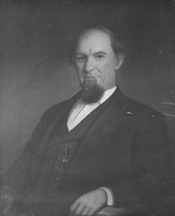A Quote by William Makepeace Thackeray
No particular motive for living, except the custom and habit of it.
Related Quotes
A convention is a social pattern we have chosen to prefer over whatever the raw world simply proffers. It is a sign of the operation of the mind, drawing the assent of a sufficient number of other minds so that the agreement will be widely operative. A convention is not a custom; a custom is a habit in which a sufficient number acquiesce. A custom can appear as a convention, but it is really a lesser act, the result of passive acceptance rather than of the imposition of design. It is the difference between learning to live by the annual flooding of the river or by a calendar.
There are constraints on what counts as "Reformed." It's more than a name or a label. It's about belonging to a particular theological stream or tradition, which is shaped in important respects by particular thinkers and their work, particular arguments and ideas, a particular community (especially, particular church communities, denominations, and so on), particular liturgies or ways of worshipping and living out the Christian life, and particular confessions that inform the practices of these communities.
The prejudice of unfounded belief often degenerates into the prejudice of custom, and becomes at last rank hypocrisy. When men, from custom or fashion or any worldly motive, profess or pretend to believe what they do not believe, nor can give any reason for believing, they unship the helm of their morality, and being no longer honest to their own minds they feel no moral difficulty in being unjust to others.
It's no wonder we don't defend the land where we live. We don't live here. We live in television programs and movies and books and with celebrities and in heaven and by rules and laws and abstractions created by people far away and we live anywhere and everywhere except in our particular bodies on this particular land at this particular moment in these particular circumstances.
I talk to groups studying the most advanced spiritual teachings and sometimes these people wonder why nothing is happening in their lives. Their motive is the attainment of inner peace for themselves - which of course is a selfish motive. You will not find it with this motive. The motive, if you are to find inner peace, must be an outgoing motive. Service, of course, service. Giving, not getting. Your motive must be good if your work is to have good effect. The secret of life is being of service.






































